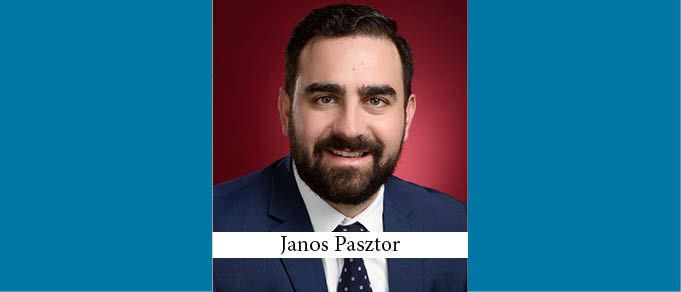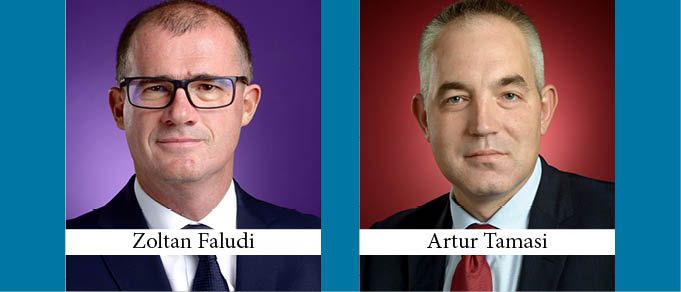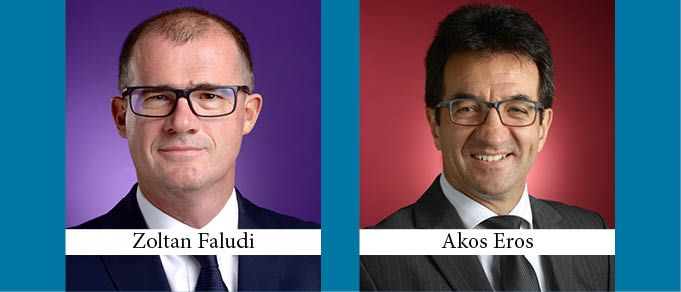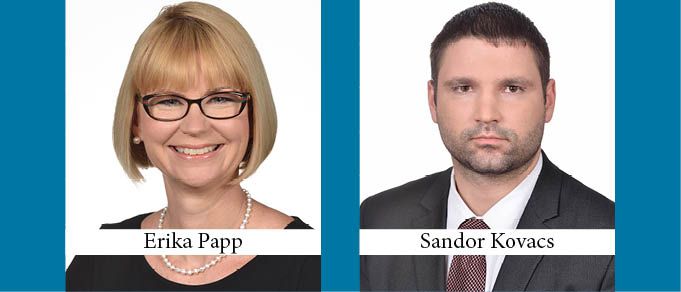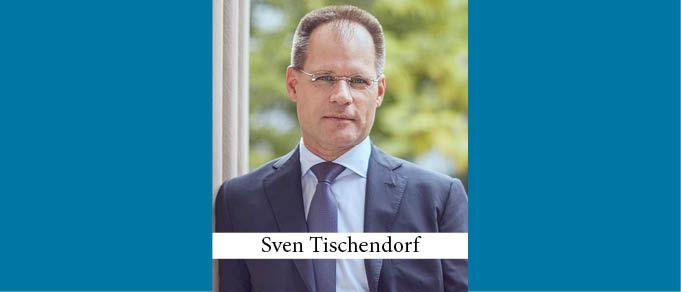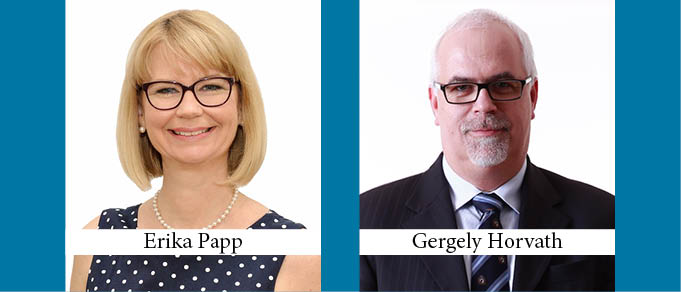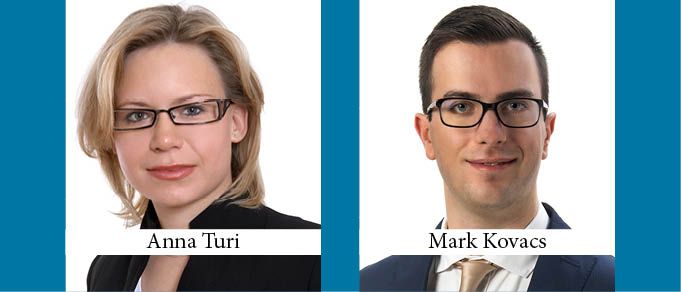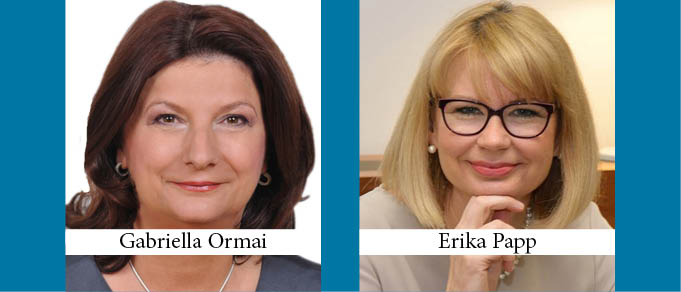In The Corner Office we ask Senior and Managing Partners across Central and Eastern Europe about their unique roles and responsibilities. The question this time around: “What is the one skill, ability, or characteristic that fresh law school graduates in your country most commonly lack?”
Power Generation Trends in Hungary: Solar Sail
In recent years, a principal aim of Hungary’s energy strategy has been to make the country self-sufficient in electric energy. In figures, this means reducing the import to 0% within ten years – as the country’s current dependency on import of approximately 30% is significantly above the EU average. The increasing price of gas and the decreasing price of electricity led to a decrease in the domestic production of natural gas, so the Hungarian energy policy had to turn to alternatives.
Recent Changes in Corporate Income Taxation in Hungary
The 2019 Hungarian tax law changes, among other measures, have introduced a new group taxation regime and reflect the implementation of the provisions set out in the European Union’s Anti-Tax Avoidance Directive (ATAD).
The Promise of Predictability in Litigation
The new Hungarian Code of Civil Procedure (the “Code”) came with a number of ambitious promises, many of which have already been addressed in CEE Legal Matters. However, a prominent promise, namely increasing the transparency and predictability of litigation, has not yet been discussed in these pages.
Bajtars: Comrades and Colleagues at Wolf Theiss Hungary
On September 11, 2018, CEE Legal Matters reported that Akos Eros, the Managing Partner of Squire Patton Boggs in Hungary, had taken a team from that international firm to join Wolf Theiss, led in Budapest by his old friend Zoltan Faludi. The reunion of these two actual comrades-in-arms is a source of real excitement at Wolf Theiss Hungary, which is embracing the changing legal market of the moment with confidence and style.
Draft Communication on Commitments in Competition Cases
The Hungarian Competition Authority has launched the public consultation process about the draft of its updated and amended communication concerning commitment decisions in Hungarian competition cases.
Marketing Law Firm Marketing: The Biggest Difference
The news that many of the legal markets in CEE impose stricter rules on law firm advertising and marketing than many of their Western counterparts comes as no surprise. Still, to explore this concept just a bit, for this issue, we asked law firm marketing and BD experts around CEE: “What, in your opinion, is the biggest difference between law firm marketing in your market and law firm marketing in London or New York?
The Hungarian National Bank Seeks to Cool Down Over-Heated Real Estate Market
Guidance No. 12/2018 (II.27) of the Hungarian National Bank entered into effect on July 1, 2018 (the “Guidance”). Although the Guidance is non-binding, financial institutions are expected to comply with its provisions. In this article, we provide a list of the most important points of the Guidance and predict market reactions based on our ongoing mandates and information obtained from our clients.
Acting In Alliance: A Look at act legal’s Growing Footprint in and Beyond CEE
On March 9, 2018, CEE Legal Matters reported on the expansion of the European act legal alliance with the addition of Hungary’s Ban Karika law firm and Fort Advocaten from the Netherlands. With the alliance now counting 13 offices in Europe – including five in CEE – CEE Legal Matters sat down with Sven Tischendorf of act legal Germany, AC Tischendorf Rechtsanwälte to learn more about the alliance’s plans.
The Corner Office: Mentors
In The Corner Office we ask Managing Partners across Central and Eastern Europe about their unique roles and responsibilities. The question this time around: Who was your mentor, and what was the most important lesson you learned from him or her?
Expat on the Market: Interview with Christopher Noblet of Hogan Lovells
English lawyer Christopher Noblet has been based on Hogan Lovells' associated Budapest office since 2000 and leads its transactional and real estate team in Hungary. He studied law at King's Kollege London.
Facing the Public After the GDPR: How to Draft Privacy Notices
Based on the transparency requirements of the GDPR, companies must now provide more detailed information on data processing. The usual form of relaying this information to the public is through a privacy notice. Now that May 25, 2018 is fast approaching and companies are working towards GDPR compliance, such privacy notices must be finalized.
Inside Out: Dentons and CMS Advise on Credit Facility for MOL
On January 11, 2018, CEE Legal Matters reported that Dentons advised the London branch of UniCredit Bank AG and MUFG as coordinators on a EUR 750 million revolving credit facility provided by a group of 13 banks to MOL Plc, the Hungarian multinational oil and gas company. CMS advised MOL on the deal, which represented the largest financing deal in Hungary in 2017.
Competition: Leniency After the Antitrust Damages Directive in Hungary: A Compromise Between Private and Public Interests?
Fighting against cartels has always been crucial to protecting fair competition and fostering economic growth. A proper leniency program is an important instrument for the competition authorities, allowing them to uncover and penalize such anticompetitive conduct.
Significant Changes on the Hungarian Renewables Market: New Limitations and Opportunities
While no more applications for Micro Projects (those below 0.5MW) can be submitted under Hungary’s very generous mandatory off-take system since the end of April 2018, the Government seems to have acknowledged that the projects already licensed under the subsidy regime may not be physically implemented within the strict deadlines set forth in the original legislation. Therefore, it is now possible for entities that applied for licenses after January 1, 2016 to ask for a three- years extension to complete their projects without any sanction. This is good news for license-owners and potential investors, as they have a reasonable amount of time to manage the relatively burdensome permitting proceedings and can also secure project finance. This is also good news for the Hungarian state budget because the first heavy payments to the projects under the mandatory off-take system will be delayed by a few more years.
Developments in Development: A Hungarian Round Table
The Hungarian real estate and housing market is experiencing golden days. Although the market took a serious hit during the financial crisis in 2008, today enormous sums are again being invested in office buildings, shopping malls, hotels, residential areas, and retail. In order to map the underlying reasons behind the market’s boom, and to better understand how the country is dealing with the high demand for development lands and properties, CEE Legal Matters sat down with six Hungarian lawyers specialized in Real Estate & Construction and a Legal Counsel from Prologis, a Real Estate & Supply Chain Logistics company.
Guest Editorial: Vanity Fair
In the summer of 2000 I was working for the University of Vienna, spending my time on academic research and fighting with topics like the (lack of) enforcement of judicial awards in Austria and Hungary. My one-day seminar at the University of Economics (FOWI) brought me several interesting contacts, including some young lawyers from the classy law firm CHS, that resulted in an offer to develop a new partner firm for CHS in Budapest.
Change at the Top
Erika Papp Takes Over from Gabriella Ormai as Managing Partner at CMS Hungary



